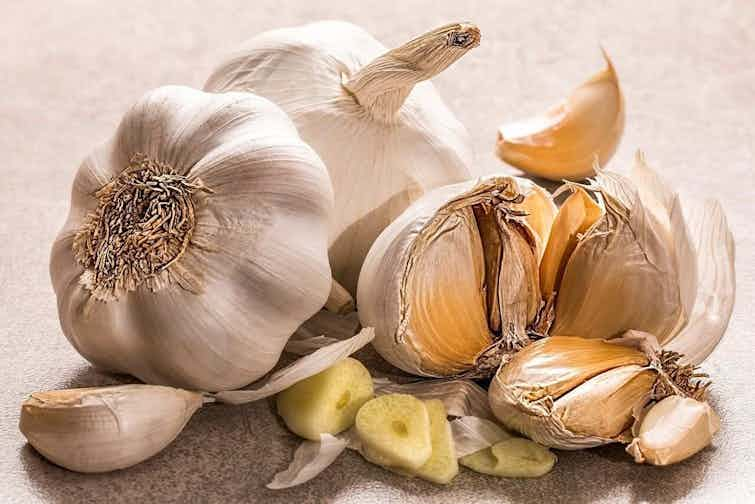Massive sweeping changes to your diet could well lead to disappointment, as you swiftly become overwhelmed by the decisions you’ve made while drunk at midnight on December 31st. Instead, why not look at small, useful changes to your diet that can help you improve your health. Here are seven foods to eat more of in 2022.
#1 Pork Tenderloin
Pork has had a bad reputation for too long. Sure, many highly processed foods such as bacon and sausages can be unhealthy. But pork comes in many forms. Pork tenderloin (also known as pork fillet) is low in fat, high in protein, and an excellent source of B-vitamins and iron.
Of all the animal fats, pork fat is considered the healthiest, as it is high in unsaturated fat and a good source of several vitamins and minerals.
Swapping out your beef steak for some pork tenderloin will lead to fewer calories consumed, more vitamins and minerals, and less saturated fat.
Pork tenderloin works well with Chinese cuisine but is also popular in Cuban and Mediterranean recipes. It also goes well with red cabbage (which is #6 on this list).
Frustrated with food waste or don't know where to start with a shopping list? Try a food subscription box to wash those worries away and put your diet - and finances - on the right track!
#2 Herbs
A mix of fresh herbs and lemon juice can make an incredible low-calorie marinade for most meats. Adding some chilli can transform the marinade into something inspiring.
Sure, adding different herbs will improve the nutrition of your meal, but the real benefit is the lack of calories. Herbs and spices can create just as good a flavour as most sauces, all without adding more than a handful of calories.
Spices are also great ways to season food without adding too many calories. They also tend to have many health benefits attached to them.
#3 Garlic
There are hundreds of minor health benefits attributed to garlic, and there does appear to be good evidence to support them. Garlic is known to lower blood pressure, help you live longer, and may also help you combat a cold.
There also appears to be evidence that garlic can help reduce your risk of cardiovascular disease and dementia.
But the main reason that garlic is on this list is that (similar to herbs) it can impart a lot of flavour without raising the calorie content of a dish too much. It is very versatile and used in many Asian, European, and African cuisines.
#4 Ginger
Fresh ginger is, like garlic, a fantastic addition to many dishes. Also, like garlic, it has many health benefits that are backed up by science. There seems to be a lot of evidence that ginger can help reduce the symptoms of joint stiffness and arthritis.
Again, it is another low-calorie option for improving the flavour of your food. As a bonus, it can help you feel better and lead a healthier lifestyle—a real win-win!
#5 Pilchards
Not the most glamorously named food on this list, but pilchards are incredibly healthy. They're also one of the most sustainable fish in the UK and are cheap to purchase.
Pilchards are an excellent source of vitamin B2 and B12, they are high in calcium and potassium, and an excellent source of vitamin D.
Pilchards are a rich source of omega-3 fatty acids, which means that they are beneficial for heart health, and may play a role in the prevention of Alzheimer’s disease.
A can of pilchards in tomato sauce will set you back around 50-60p and contains around 20g of protein for 200 calories. Stick it on toast for one of the cheapest, healthiest lunches you can ask for.
It also makes an excellent puttanesca if you’re feeling fancy.
#6 Red Cabbage
Red cabbage has to be one of the most underrated vegetables in existence. Not only is it packed with vitamins and minerals (specifically A and C), but it is also very low in calories.
You can use red cabbage in salads, or it can be braised, pickled, and slow-cooked. It’s also excellent value for money. Check out these fantastic recipes for red cabbage from the BBC.
#7 Brussels Sprouts
Why on earth do we only eat Brussels sprouts at Christmas? And why do we only ever boil them? Sprouts deserve better than that! Not only are they an incredibly healthy vegetable, but they are also versatile and complex.
You can roast, steam, grill, and stir fry your sprouts. If you're feeling decadent, you can fry them with bacon and white wine, or create creamed Brussels sprouts with nutmeg and chestnuts.
Sprouts are fantastic sources of vitamins C and K (as such, you should avoid eating too many of them if you are on blood-thinning medication).
They also work as aromatase-inhibitors and can help men who have too much estrogen in their body to get back to normal levels.
Food resolutions for 2022
There you have it, seven foods you can add to your diet, guilt-free, in 2022. We have chosen these foods semi-randomly, so why not pick some others you know you should eat more of? Eating a large variety of healthy foods will help to improve your diet more than eating the same foods day in, day out.
Eating Brussels sprouts more often is a good idea, with lots of health benefits. But eating them every day as part of a new diet is going to become dull soon. The same thing goes with red cabbage, pork tenderloin, and definitely with pilchards!
Herbs and spices, and foods such as garlic are a different matter. You could easily add them to your food every day without them becoming dull, and the health benefits are pretty useful.
Get creative, try fruits and vegetables that you wouldn't usually. Slowly add in some slightly more exotic meals into your diet. Not only will you enjoy a wealth of health benefits, but your meals will become more exciting, and you'll be a more rounded amateur chef!









